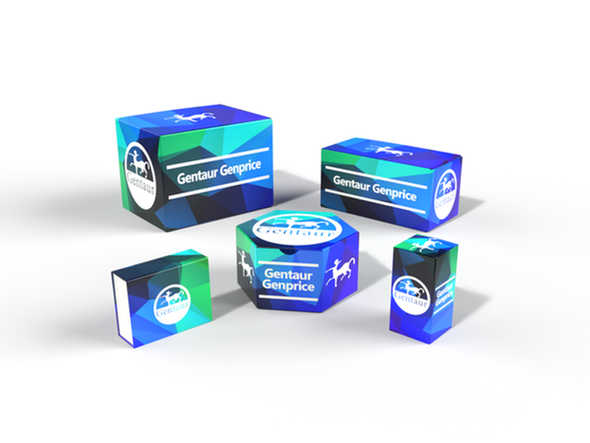BW
CAMKV polyclonal Antibody | BS61522
- SKU:
- BW-BS61522
- Availability:
- Usually ships in 5 working days
Description
CAMKV polyclonal Antibody | BS61522 | Gentaur UK, US & Europe Distribution
Host: Rabbit
Reactivity: Human,Mouse,Rat
Application: WB
Application Range: WB: 1:500~1:1000
Background: The Ca2+/calmodulin-dependent protein kinases (CaMKs) comprise a structurally related subfamily of serine/threonine kinases. CAMKV (CaM kinase-like vesicle-associated), also known as 1G5 or VACAMKL, is a 501 amino acid protein that localizes to cytoplasmic vesicles, as well as to the cell membrane, and contains one protein kinase domain. Although a member of the CaMK family, CaMKV is thought to be catalytically inactive, but it may play a role in vesicle function and nervous system development. Multiple isoforms of CaMKV exist due to alternative splicing events. The gene encoding CaMKV maps to human chromosome 3, which houses over 1,100 genes, including a chemokine receptor (CKR) gene cluster and a variety of human cancer-related gene loci. Key tumor suppressing genes on chromosome 3 include those that encode the apoptosis mediator RASSF1, the cell migration regulator HYAL1 and the angiogenesis suppressor SEMA3B. Marfan Syndrome, porphyria, von Hippel-Lindau syndrome, osteogenesis imperfecta and Charcot-Marie-Tooth Disease are a few of the numerous genetic diseases associated with chromosome 3.
Storage & Stability: Store at 4°C short term. Aliquot and store at -20°C long term. Avoid freeze-thaw cycles.
Specificity: CAMKV polyclonal Antibody detects endogenous levels of CAMKV protein.
Molecular Weight: ~ 54 kDa
Note: For research use only, not for use in diagnostic procedure.
Alternative Names: CaM kinase-like vesicle-associated protein; CAMKV
Immunogen: Synthetic peptide, corresponding to amino acids 212-256 of Human CAMKV.
Conjugate: Unconjugated
Modification: Unmodification
Purification & Purity: The Antibody was affinity-purified from rabbit antiserum by affinity-chromatography using epitope-specific immunogen and the purity is > 95% (by SDS-PAGE) .
Pathway:






